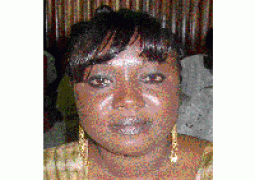A one-day sub-regional validation of a case study on cultural rights in The Gambia wrapped up at the Paradise Suites Hotel on Monday.
The forum, which attracted participants from Guinea Bissau, Senegal and The Gambia, was organised by NATCOM-UNESCO, in collaboration with NCAC, and sponsored by UNESCO- BREDA.
In his opening remarks on the occasion, the Minister of Tourism and Culture, Fatou Mass Jobe-Njie, said culture is fundamental in any society, particularly in developing countries.
“Wars and conflicts have deprived the less privileged children of their rights to education, to proper health care and good living conditions,” she said, adding that several national languages are facing the danger of extinction due to several factors some of which are related to migration, intermarriages and discrimination.
Women, she said, are facing a lot of leadership challenges mostly related to cultural practices and beliefs.
According to her, President Jammeh and his government has placed culture and cultural promotion as a top most priority. “He has encouraged children to take up responsibility and be leaders in pioneering child rights through the creation of several associations one of which is the National Patriotic Students Association,” she said.
She further noted that The Gambia can pride herself of being on the forefront in the promotion of women rights and their empowerment.
“His Excellency has continued and continues to advocate for women to be given the opportunity to develop their potentials and contribute their quota side by side with men,” she said.
She used the occasion to thank UNESCO sub-regional Bureau for Education and Development in Africa,
For his part, Yahya Al- Matarr Jobe, principal programme officer of UNESCO who spoke on behalf of the UNESCO secretary general, said: “Today we can proudly mention here that The Gambia has sincerely made great strides in the area of children and women rights.”
Gambians, he noted, are also enjoying the rights and opportunities to express their diverse cultures in all forms.
Mr Jobe asserted that the case study reviewed attempted to bring all the said factors under scrutiny. “Our international experts invited by UNESCO-BREDA, with the carefully selected national stakeholders have the task today to look at the document once again and improve it to highlight our true reflections to add an international dimension to it,” he noted.
Mr Jobe on behalf of the Secretary General and staff of Gambia National Commission for UNESCO extended gratitude to UNESCO-BREDA through Marema Toure-Thiam for their financial support to the successful conduct of the case study.
Other speakers on the occasion were Maiama Touray Cham of UNESCO-BREDA, and Baba Ceesay of NCAC.



